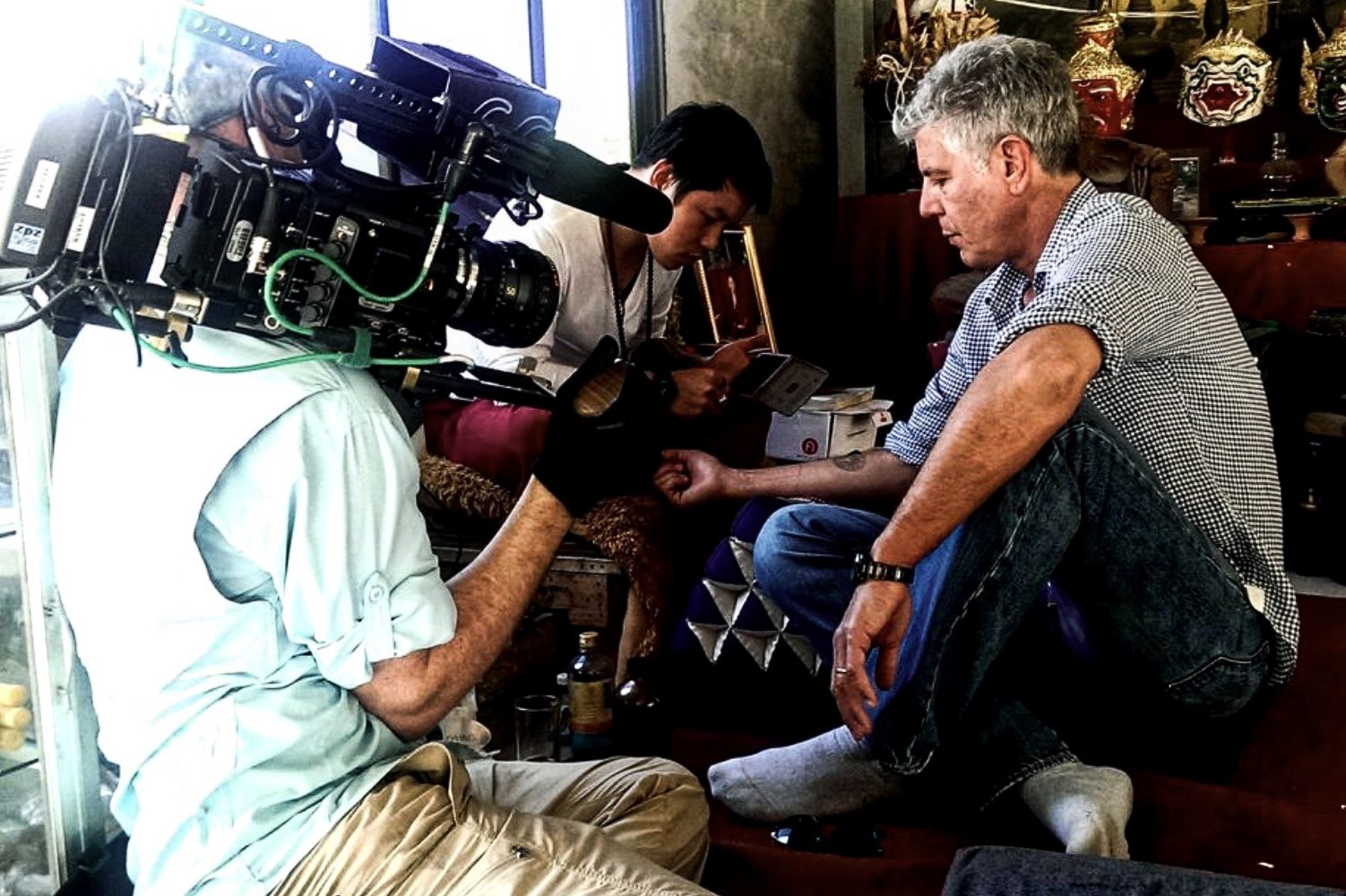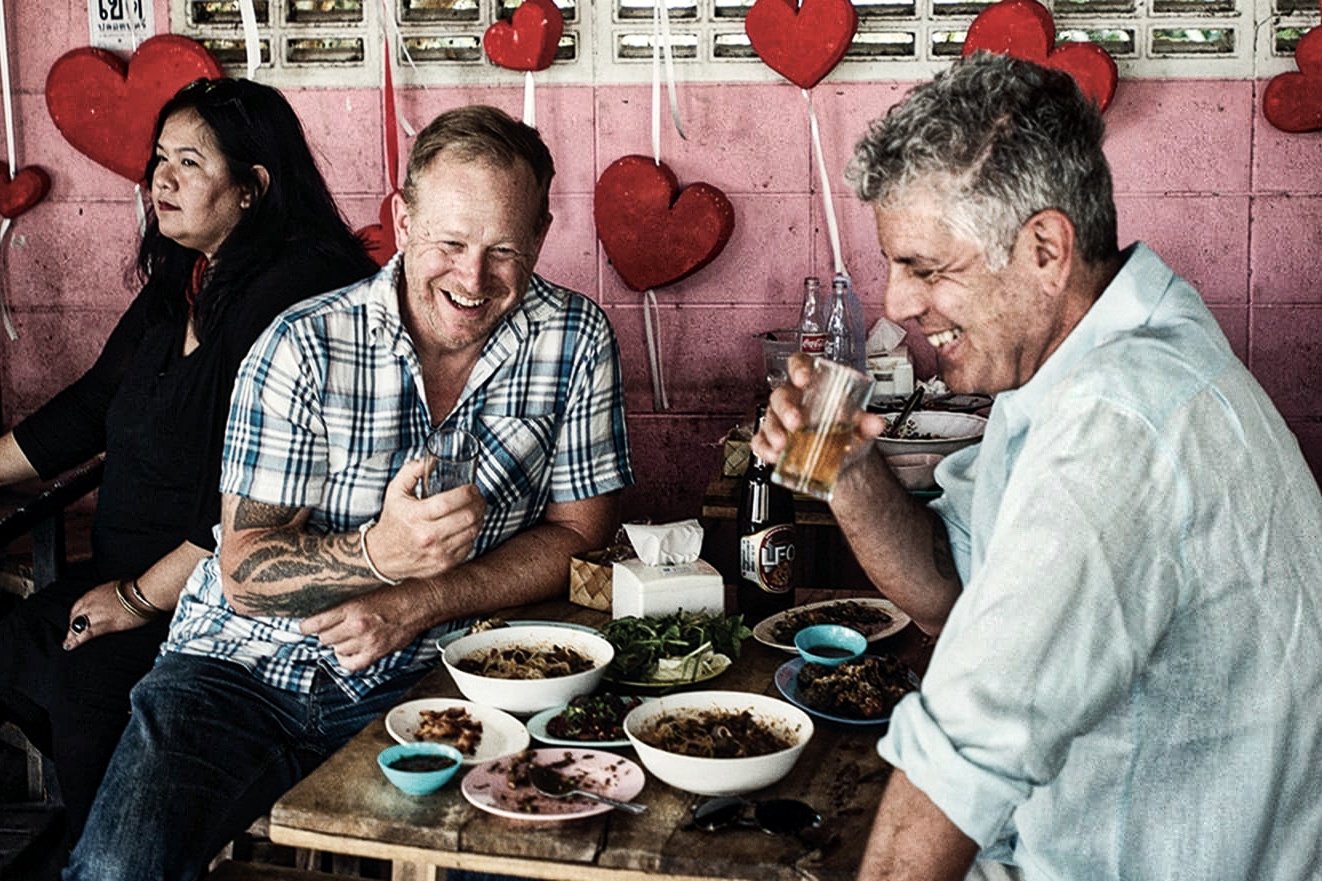“I’m a big believer in a healthy, nutritious breakfast,” Anthony Bourdain famously, or not so famously, said during a visit to Thailand, little more than 10 years ago. “It's the most important meal of the day. My doctor said that. Of course, he also said that everything I love and hold dear is killing me, so what does he know?”
Thailand changed everything, Anthony Bourdain said.
“I remember the moment I first realized I've been living my whole life in black and white,” Bourdain said in the Thailand episode of Parts Unknown, which first aired on CNN 10 years ago in June.
“It was like discovering a colour I never knew existed before. A whole new crayon box full of colours. That was it for me.
“From then on, there was no putting the pieces back together. No going home. Things were different now. Asia had ruined me for my old life.”
Thailand, By the numbers: 67 million people. One hundred bottles of whiskey: the number of bottles of whiskey produced each day at the distillery Bourdain visited in the Chiang Mai region in Thailand’s northwest, as far removed from Bangkok, geographically and spiritually, as Venice is from Rome.
Countless: The number of whiskey shots consumed during Bourdain’s stay during the Parts Unknown shoot.
Thailand was the second-to-last episode of Parts Unknown’s third season and it marked a decided change, in both pace and tone, from the political and societal tensions that roiled previous episodes in Russia and Mexico. Bourdain was determined to live life to its fullest in a land that, long before Parts Unknown, had claimed a piece of his heart and soul.
Thailand was also a break for Parts Unknown’s followers, then and now.
The emphasis was on food, and joy — not just ladyboys and joy luck clubs but on the simple joys that make life worth living.
There was the food. Khao kha moo (stewed pork leg) at the Khao Ka Moo Cowboy Hat Lady sidewalk stall in Chang Phueak, Muang. Yes, Cowboy Hat Lady wears a cowboy hat, and she shares a disarming anecdote in Thailand’s first half about when, where, how and why she came to wear a cowboy hat.
There’s the deep-fried chicken and Thai chili nam phrik num at Gia Tod Teing Keun in Muang, in Kanchanaburi province. Not to mention the Khao soi (curry coconut milk noodle soup), som tam (green papaya salad), and Thai rice tea at Khao Soi Lam Duan, also in Muang. And French fries — yes, those French fries — and how they came to be a staple of Thai cooking in Thailand. Bet you didn’t know that.
And don’t forget the pad kee mao (drunken noodles — no jokes, please), kra pao gai (Thai basil chicken) and pad cha talay (seafood stirfy) at Krapao on Chiang Mai-Mae Jo Road in San Sai district
Bourdain’s sidekick, spiritual minder, and culinary host for the hour was Pok Pok restaurateur and US expat Andy Ricker, seven years Bourdain’s junior and renowned for his knowledge of and expertise in cuisine specific to the northern Thai region.
Bourdain: “The good stuff comes from places like here. Rice country. Chiang Mai Province. In this part of the world, you live and die by the harvest. Thai food is intensely regional. Northern Thailand in particular, has many distinctive features. This is a world of fresh, delicious, spicy, meaty, salty, sour, sweet, bitter. Often with a just-picked herby dimension.
“Once known as the kingdom of a million rice fields, it's a fertile, green and gorgeous area, home of the ancient Latta people. Welcome to Chiang Mai Province, tucked up near the borders of Burma, China, Laos, and India, not too far away. All of them have left their mark on the food.”
Enter Andy Ricker.
Bourdain: “Andy has been constantly back and forth from America to Thailand for nearly 25 years now, looking for recipes and techniques and digging deeper and deeper into an amazingly complex and widely misunderstood cuisine.
“And getting his ass chastised by a few aunties as he goes.”
Aided and abetted by copious quantities of the local eau-de-vie.
“He drinks half a bottle every day,” Ricker marvels at one elderly gentleman. So, it's pretty much the Keith Richards health and preservation plan.”
“All right,” Bourdain replies, not one to miss a beat. “We will get healthy, too. The whiskey, I have to say, is taking hold. In some clinically fascinating ways. … In Chiang Mai, you can move in and out.
“From the quiet green of the countryside to just a few miles away, the madness and chaos of Chiang Mai City. Second largest in Thailand. Spirituality, reflection, the serene beauty of the rice paddy, village life. Maybe next episode.
“This time, it's all about consuming medically inadvisable amounts of food and drink. If Thailand is one of the best countries to eat in, Chiang Mai is a particularly good city to find yourself hungry. Oh, that's the frog.”
On your mark, get set, go.
But first, a clarification.
Bourdain: “This may surprise you, but I am not an alcoholic. I don't drink at home ever. There's no beer in my fridge. If I'm not working, I'm not hanging out in bars. But if I was an alcoholic, and I did hang in bars, I would hang here.”
Bourdain tells Ricker later, “You famously said that you hate the word authentic. “What does that word mean?”
Ricker: “Depends on the context. If you're in the United States and you say traditional authentic Thai restaurant, to me, that has come to mean a standard Thai restaurant in America. That menu. When you come here, authentic is different. You're the daughter of the woman who made this, then to you this is the most authentic version of that dish. If you are from Nan province, you still make larb but it doesn't taste like this. A little bit different.”
Now for some karaoke, maybe?
Bourdain, surprise to say, has his limits.
“The very mention of karaoke makes my blood run cold with fear,” he says, and for a moment there, it’s hard to tell if he’s serious or joking.
“That could be me someday, I'm thinking. Things go just a little wrong, and I go off the rails. This would be all too attractive. I could well see myself singing Happy Birthday in German to tourists at a hotel bar in Jakarta or Bangkok.
“This is gonna stick in my head now, this song. … Chiang Mai at night.
“We are well on our way. To where, to what, I don't know, I don't much care. But I do know it's time to eat. In Thailand, it's almost always time to eat.
“Yes, and drink. We shall be doing that, too. … When the journey is coming to an end, when the movie is over, what's left to do?
“Oh, yes, wrap things up. I think we've learned something here today in Chiang Mai; I can't summon what it might be right now,
“Or maybe just say, screw it and have a good time. It is quite beautiful. Thank you so much.”
He is missed.
For supplementary reading, check out this behind-the-scenes account for CNN by longtime Thailand resident and US-born guidebook author Joe Cummings: https://www.cnn.com/travel/article/anthony-bourdain-thailand/index.html


